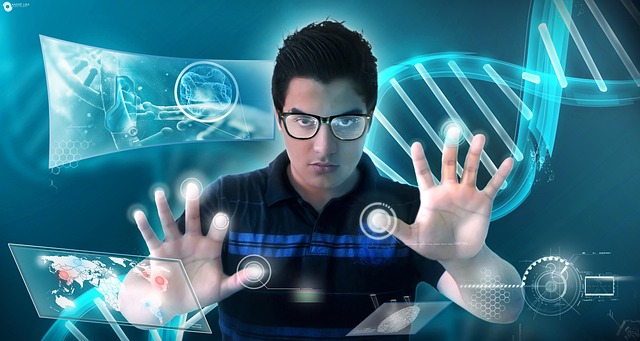# The Impact of AI Technology on Modern Society: Innovations Reshaping Our Daily Lives and Workplaces
Artificial Intelligence (AI) has rapidly evolved from a niche area of computer science into a transformative force that permeates various aspects of modern society. Its applications range from enhancing personal convenience to revolutionizing entire industries. This article explores the multifaceted impact of AI technology on our daily lives and workplaces, examining how innovations are reshaping our interactions, productivity, and decision-making processes.
## Transforming Daily Life: AI in Personal Applications
In recent years, AI has become an integral part of everyday life, largely through the proliferation of smart devices and applications. Virtual assistants like Amazon’s Alexa, Apple’s Siri, and Google Assistant have changed the way individuals manage their day-to-day activities. These AI-driven tools can set reminders, control smart home devices, and even provide real-time information, making them indispensable companions in modern households.
Moreover, AI algorithms are at the heart of personalized content delivery systems. Platforms such as Netflix, Spotify, and social media sites utilize AI to analyze user behavior and preferences. This leads to tailored recommendations that enhance user experience, ensuring that individuals are exposed to content that aligns with their interests. As a result, the way we consume entertainment and information has shifted dramatically, transforming passive viewing into a more engaging and personalized experience.
Beyond entertainment, AI is also making strides in healthcare. Wearable devices equipped with AI capabilities can monitor vital signs, detect irregularities, and provide valuable health insights. These innovations empower individuals to take charge of their health, enabling proactive measures rather than reactive treatments. Consequently, the integration of AI in personal health management is fostering a culture of wellness and preventative care.
## Revolutionizing Workplaces: AI in Professional Environments
Shifting focus to workplaces, AI technology is redefining how organizations operate and how employees engage with their tasks. Automation, powered by AI, is streamlining processes that were once labor-intensive and time-consuming. Routine tasks such as data entry, scheduling, and inventory management can now be handled efficiently by AI systems, freeing up human workers to focus on more strategic and creative endeavors.
Furthermore, AI-driven analytics tools are transforming decision-making processes within organizations. Businesses now have access to vast amounts of data that can be analyzed in real-time, providing insights that were previously unattainable. This data-driven approach allows companies to make informed decisions, anticipate market trends, and respond swiftly to consumer needs. As a result, organizations are becoming more agile and competitive in an ever-evolving marketplace.
Collaboration is also being enhanced through AI technologies. Tools such as chatbots and virtual collaboration platforms facilitate communication among team members, regardless of geographical location. These innovations not only improve efficiency but also foster a culture of teamwork and innovation. Employees can share ideas and resources seamlessly, leading to a more cohesive work environment that encourages creativity and collaboration.
## Ethical Considerations and Future Implications
Despite the numerous benefits that AI technology brings to society, it also raises important ethical considerations that must be addressed. Concerns about data privacy, algorithmic bias, and job displacement are at the forefront of discussions surrounding AI adoption. As organizations increasingly rely on AI systems, ensuring that these technologies are transparent, fair, and accountable is crucial to maintaining public trust.
Additionally, the potential for job displacement due to automation cannot be overlooked. While AI can enhance productivity, it may also render certain roles obsolete. This reality necessitates a proactive approach to workforce development, emphasizing reskilling and upskilling initiatives to prepare workers for the changing job landscape. Educational institutions and companies must collaborate to equip individuals with the skills needed to thrive in an AI-driven economy.
Looking ahead, the future of AI technology promises even greater advancements. Emerging fields such as natural language processing, computer vision, and machine learning are expected to continue evolving, leading to innovations that we can only begin to imagine. As AI becomes more sophisticated, its applications will likely expand into new areas, potentially revolutionizing sectors such as agriculture, transportation, and education.
## Conclusion: Embracing the AI Revolution
In conclusion, the impact of AI technology on modern society is profound and far-reaching. Innovations in personal applications are enhancing our daily lives, while AI’s role in workplaces is redefining productivity and collaboration. However, it is essential to approach these advancements with a critical eye, addressing ethical considerations and preparing for the future workforce landscape. By embracing the AI revolution responsibly, society can harness its potential to create a more efficient, innovative, and equitable world. As we navigate this transformative era, the balance between leveraging AI’s capabilities and safeguarding human values will be paramount in shaping a future that benefits all.











